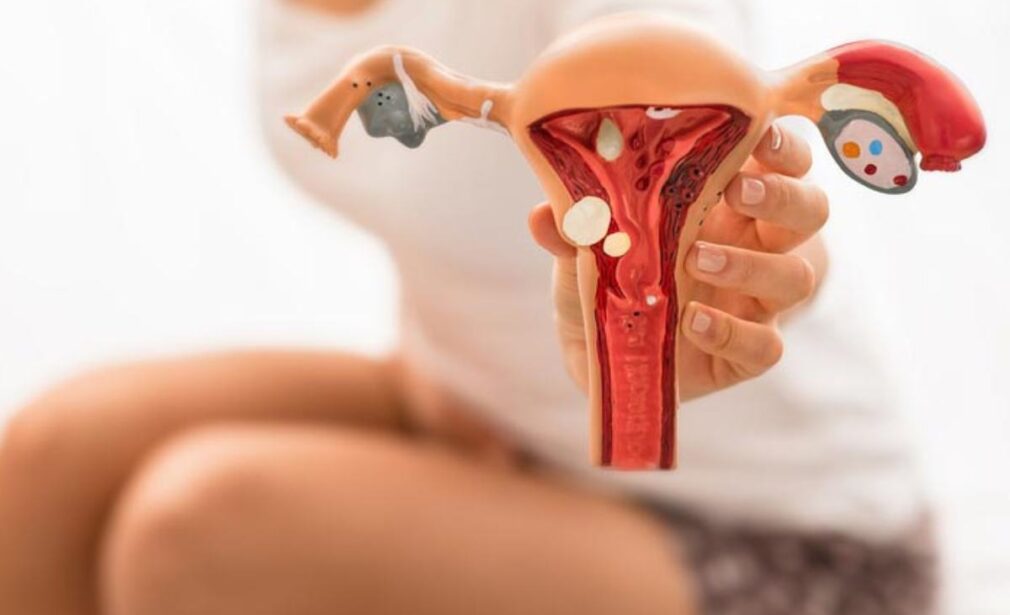Delivering world class medical care
Endometriosis: Understanding Causes, Symptoms, and Treatment at Simran IVF
Endometriosis is a complex and painful condition where tissue, similar to the lining of the uterus, grows outside the uterus. This can affect the ovaries, fallopian tubes, and the pelvic lining, and in rare cases, even spread to areas beyond the pelvic region. This condition can cause severe pain, particularly during menstruation, and is often associated with infertility. At Simran IVF, with centers in Mohali, Chandigarh, and Amritsar, we provide specialized care and treatment options to help manage endometriosis and support women in their journey toward conception.
What is Endometriosis?
Endometriosis is a disorder in which endometrial-like tissue grows outside the uterus. The lining of the uterus (the endometrium) typically sheds during menstruation, but when this tissue grows outside the uterus, it causes internal bleeding and inflammation, leading to pain and potentially disrupting fertility. The most common locations for this tissue to grow include the ovaries, fallopian tubes, and the pelvic cavity. However, in rare cases, it can also affect organs outside the reproductive system.
Endometriosis can manifest in various stages, with symptoms often worsening over time. These symptoms include severe pelvic pain, painful menstruation, and infertility. For women struggling with fertility, treatments like IVF (in vitro fertilization) or IUI (intrauterine insemination) can be part of the solution, especially when dealing with the challenges posed by endometriosis.
Symptoms of Endometriosis
The symptoms of endometriosis can vary widely, but the most common ones include:
Severe Menstrual Pain: This is often the most noticeable symptom. Pelvic pain and cramping may begin before menstruation starts and can persist for several days. As the condition worsens, the pain becomes more intense and may radiate to the lower back or abdomen.
Painful Intercourse: Many women with endometriosis experience pain during or after sexual activity. This pain can be sharp or deep and may occur regardless of the position during sex.
Painful Urination or Bowel Movements: These symptoms are typically worse during menstruation. Endometriosis can affect the bladder or intestines, leading to pain during urination or bowel movements, particularly during the menstrual cycle.
Heavy Menstrual Bleeding: Women with endometriosis often report excessive bleeding during their menstrual cycle. The bleeding may be heavier than usual, and sometimes it can last longer than typical periods.
Infertility: Endometriosis is one of the leading causes of infertility in women. It can damage the ovaries, fallopian tubes, and the pelvic organs, making conception more difficult.
Other Symptoms: These may include fatigue, bloating, nausea, diarrhea, and constipation. These symptoms often occur in the days leading up to or during menstruation.
Because these symptoms can overlap with other conditions, a medical diagnosis from an experienced healthcare provider is essential. The severity of endometriosis cannot always be determined by symptoms alone, and diagnostic tools like laparoscopy may be necessary to evaluate its extent.
Causes of Endometriosis
The exact cause of endometriosis remains unclear, but several theories exist:
Retrograde Menstruation: This theory suggests that menstrual blood flows backward through the fallopian tubes into the pelvic cavity rather than being expelled from the body. This blood may carry endometrial cells that then adhere to the pelvic organs, growing and causing pain.
Embryonic Cell Transformation: During puberty, hormones like estrogen might cause embryonic cells in the pelvic area to transform into endometrial-like cells, leading to endometriosis.
Immune System Issues: A compromised immune system may be unable to identify and destroy the endometrial cells that grow outside the uterus, contributing to the progression of endometriosis.
Surgical Scarring: In some cases, endometrial cells can be transplanted during surgeries such as C-sections, leading to scar endometriosis.
Genetic Factors: There is also a genetic component to endometriosis. Women with a family history of the condition are at a higher risk.
Diagnosis of Endometriosis
At Simran IVF, we utilize several diagnostic methods to confirm the presence of endometriosis, which includes:
Laparoscopy: This is the most effective way to diagnose endometriosis. A small incision is made near the belly button, and a camera is inserted to view the inside of the pelvic cavity. This allows the doctor to identify any endometrial tissue outside the uterus and assess the extent of the disease.
Pelvic Ultrasound: While a pelvic ultrasound may not definitively diagnose endometriosis, it can help detect ovarian cysts associated with the condition.
MRI and Biopsy: In some cases, an MRI may be used to get detailed images of the pelvic organs, while a biopsy may be performed to confirm the diagnosis.
Treatment for Endometriosis
Treatment for endometriosis is tailored to each patient’s symptoms, age, and desire to preserve fertility. At Simran IVF in Mohali, Chandigarh, and Amritsar, we offer both medical and surgical treatments to help manage the condition.
Medical Treatment
Pain Management: Over-the-counter medications like NSAIDs (e.g., ibuprofen, naproxen) are commonly recommended to alleviate pain. These medications help reduce inflammation and ease discomfort.
Hormone Therapy: Hormonal treatments, such as birth control pills, Gn-RH agonists, and progestin therapy, can help regulate the menstrual cycle and reduce the growth of endometrial tissue. Hormonal therapies can also alleviate pain but are not a permanent solution, as symptoms often return once the treatment is stopped.
Aromatase Inhibitors: These medications lower estrogen levels in the body, which can slow the growth of endometriosis tissue.
Surgical Treatment
Conservative Surgery: Laparoscopic surgery is commonly used to remove endometrial tissue while preserving the ovaries and uterus. This surgery aims to relieve pain and improve fertility outcomes. For women struggling with fertility, this procedure can help restore the body’s natural ability to conceive.
Hysterectomy: In severe cases, particularly for women who no longer wish to have children, a hysterectomy (removal of the uterus) may be considered. This is usually seen as a last resort when other treatments have not provided relief.
Fertility Treatment: For women with endometriosis-related infertility, fertility treatments like IVF and IUI can be effective in overcoming the challenges posed by the condition. These treatments may involve stimulating the ovaries to produce more eggs or directly fertilizing eggs in the lab before implanting them into the uterus.
Online simple step for appointment
To make an appointment at Simran IVF, simply reach out through our contact page, where you can fill out an easy form to schedule a consultation. Our team will get back to you promptly to confirm your appointment details. Alternatively, you can call our office directly to speak with one of our friendly staff members, who will assist you in selecting a convenient time for your visit. We look forward to supporting you on your fertility journey!

Make Appointment

Select Doctor


